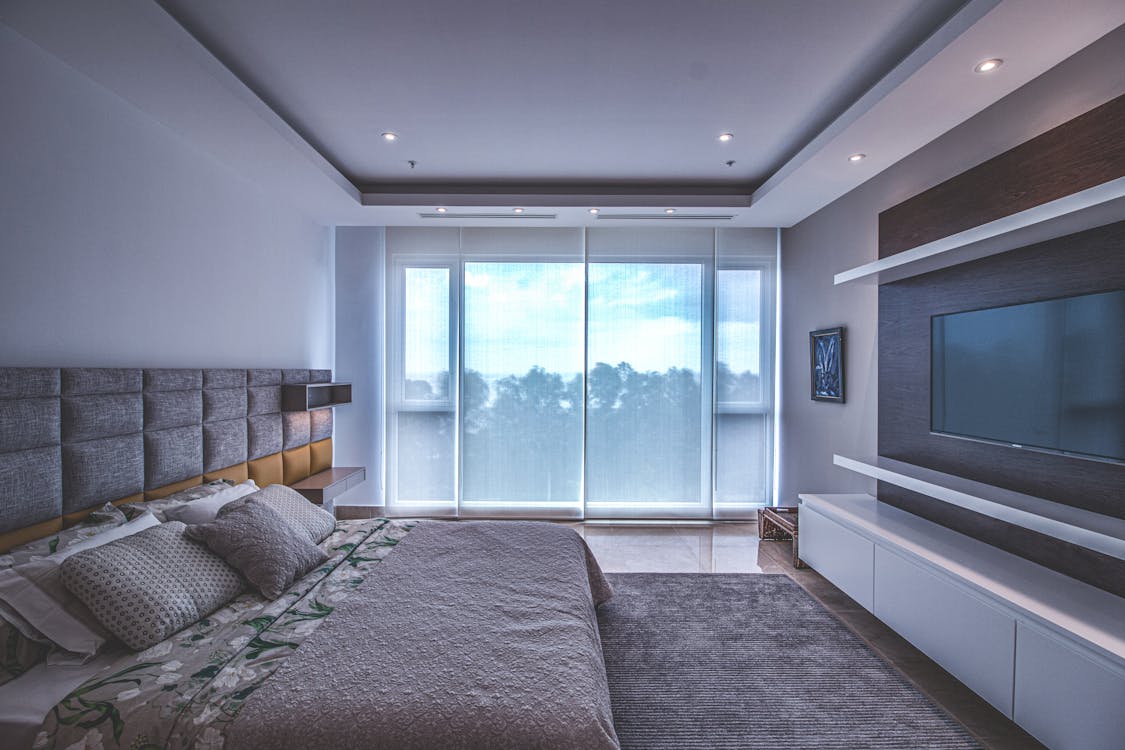In the world of home remodelling, homeowners frequently investigate several possibilities in their quest for energy efficiency and comfort. Among them, double glazing is a common pick due to the many benefits it offers, including better insulation, lower energy costs, and higher property values.

However, is double glazing as effective as claimed? We examine the practical advantages of double glazing and the science behind it in this article.
We reveal the countless ways in which double glazing may enhance your living space, from better thermal insulation to reduced noise, and more. So, to find out if double glazing is a good investment for your house, let’s have a look at it.
Does Double Glazing Make A Difference?
Yes, double glazing can make a significant difference in several aspects of your home. Here are some key benefits:
- Improved Thermal Insulation: Double glazing consists of two layers of glass with a space in between filled with air or gas. This design acts as a barrier against heat transfer, keeping the interior of your home warmer in winter and cooler in summer. As a result, you may experience reduced reliance on heating and cooling systems, leading to potential energy savings.
- Reduced Energy Costs: By enhancing thermal insulation, double glazing helps to maintain a more stable indoor temperature, reducing the need for heating and cooling. This can lead to lower energy consumption and subsequently lower energy bills over time.
- Enhanced Sound Insulation: The additional layer of glass in double glazing also provides better sound insulation compared to single-pane windows. This can help reduce noise from outside sources such as traffic, neighbours, or construction, creating a quieter and more peaceful indoor environment.
- Increased Security: Double-glazed windows are typically more robust than single-pane windows, making them harder to break. This added security can help deter intruders and improve the overall safety of your home.
- Condensation Reduction: Double glazing can help reduce condensation buildup on your windows by maintaining a more consistent temperature on the interior glass surface. This can minimize the risk of mould and mildew growth, improving indoor air quality and prolonging the lifespan of your windows.
While the initial investment in double glazing may be higher than traditional single-pane windows, the long-term benefits in terms of energy efficiency, comfort, and durability often make it a worthwhile investment for homeowners.
Is It Worth Upgrading The Double Glazing?
Deciding whether it’s worth upgrading your double glazing depends on several factors:
- Current Condition: Assess the condition of your existing double glazing. If it’s old, damaged, or showing signs of wear and tear, upgrading to newer, more energy-efficient double-glazed windows could offer significant benefits.
- Energy Savings: Consider the potential energy savings from upgrading to more advanced double glazing. Newer technologies, such as low-emissivity (low-E) coatings and gas fills, can enhance thermal performance and reduce heat loss even further, potentially leading to greater energy savings over time.
- Comfort and Convenience: Upgrading double glazing can improve comfort levels in your home by reducing drafts, minimizing condensation, and providing better sound insulation. If you value a comfortable and quiet living environment, upgrading may be worth it.
- Long-Term Cost Savings: While there is an upfront cost associated with upgrading double glazing, consider the long-term cost savings in terms of reduced energy bills, maintenance costs, and potential increases in property value. Calculate the payback period to determine if the investment aligns with your financial goals.
- Environmental Impact: Investing in energy-efficient upgrades like advanced double glazing can reduce your carbon footprint by decreasing energy consumption and greenhouse gas emissions. If sustainability is important to you, upgrading may be a worthwhile choice.
- Government Incentives: Explore any available government incentives or rebates for energy-efficient home upgrades. These incentives can help offset the upfront cost of upgrading double glazing, making it a more financially attractive option.
The decision to upgrade your double glazing depends on your specific circumstances, priorities, and budget. If improved energy efficiency, comfort, and long-term cost savings align with your goals, upgrading double glazing could be a valuable investment in your home.
How Long Does Double Glazing Last?
Factors like material quality, installation, maintenance, and environmental conditions affect how long double glazing lasts. Having said that, with regular maintenance, a double-glazing unit can endure for twenty to thirty years, or even longer.
The lifespan of double glazing can be extended with regular maintenance, which includes cleaning the glass and frames, inspecting for signs of damage or wear, and making sure there is enough insulation and sealing. Its endurance and durability can be enhanced by selecting high-quality materials and having a professional handle the installation.
Be sure to keep an eye on your double glazing over time. If you see any major problems, such as moisture between the panes, air leaks, or damage that affects its function or appearance, it may be time to replace it. It could be helpful to upgrade to newer technologies and choose solutions that use less energy when they become available.
Here are some additional examples of factors that can influence the lifespan of double glazing:
- Quality of Materials: The quality of materials used in the manufacture of double-glazing units can significantly impact their longevity. High-quality glass, spacer bars, seals, and framing materials are more durable and resistant to wear and degradation over time.
- Installation Quality: Proper installation is crucial for the performance and lifespan of double glazing. Poorly installed windows may experience issues such as air leakage, water infiltration, and structural instability, which can shorten their lifespan.
- Maintenance Practices: Regular maintenance, such as cleaning, lubricating moving parts, and inspecting for damage, can help extend the lifespan of double glazing. Neglecting maintenance can lead to deterioration and premature failure of components.
- Environmental Conditions: Environmental factors such as exposure to extreme temperatures, humidity, UV radiation, and harsh weather conditions can affect the lifespan of double glazing. Windows installed in regions prone to severe weather may experience accelerated wear and deterioration.
- Usage and Wear: The frequency of use and level of wear and tear on double glazing can impact its lifespan. Windows that are frequently opened and closed or subjected to heavy use may experience more rapid deterioration of components such as seals, hinges, and locking mechanisms.
- Manufacturing Standards: Double-glazing units manufactured to high-quality standards and industry certifications are more likely to have a longer lifespan compared to those produced using substandard materials or manufacturing processes.
- Upkeep of Surrounding Components: The condition of surrounding components such as window frames, sills, and flashing can also affect the performance and longevity of double glazing. Proper maintenance and repair of these components can help prevent issues that may compromise the integrity of the window system.
By considering these factors and taking proactive measures to maintain and care for your double glazing, you can maximize its lifespan and performance for many years to come.
Conclusion
The materials used, the quality of the installation, the maintenance procedures, the weather, and the amount of use all have a role in determining how long a double-paned window will last.
Exposure to severe weather, lack of maintenance, and improper installation can reduce the lifespan of a double-glazing unit, which can otherwise last 20 to 30 years or more with adequate care and installation.
If homeowners want their double glazing to last, they should have a professional to install it, use high-quality materials, and keep up with routine maintenance. Keeping an eye on the state of double glazing and fixing any problems quickly will help it last longer and work better.
Double glazing is an investment, but the long-term savings on energy costs, improved comfort, and increased property value more than makeup for the upfront expense. Double glazing is an excellent investment for homeowners who take the time to learn about the elements that affect its longevity and then take proactive steps to maintain it.
For more information, click this guide “a fantastic read”.
